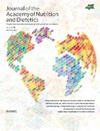营养学教育中的系统思维和可持续食品系统:主任调查。
IF 3.5
2区 医学
Q2 NUTRITION & DIETETICS
Journal of the Academy of Nutrition and Dietetics
Pub Date : 2025-01-01
DOI:10.1016/j.jand.2024.06.233
引用次数: 0
摘要
背景:建议在营养与营养学教育中教授食物与水系统的可持续性时采用系统思维,但并非必需:本研究调查了营养与营养学课程中的系统思维与可持续、有弹性和健康的食物与水系统(SRHFWS)。研究考察了项目主任的实践、价值观、态度、信心水平,以及系统思维、SRHFWS主题教学、信心水平、营养师和项目主任工作年限之间的关系:该研究于 2022 年 9 月进行,采用描述性设计,使用经过验证的 20 个项目的系统思维量表(STS)和研究人员设计的 1-5 个李克特量表进行调查:在线调查的对象是611名营养与饮食教育认证委员会(ACEND)的项目主任,回复率为27%(n=163):使用 Excel 计算描述性统计(频率、平均值、标准差)。方差分析用于比较作为营养师和项目主任的经验与教授每个 SRHFWS 主题的信心水平。线性回归用于确定 STS 总分与人口统计学变量和项目变量之间的关系:77%的项目主任在 STS 中得分较高(平均分 65.2,0-80 分,SD 8.4),85% 以上的主任认为在营养学中纳入系统思维非常重要。然而,只有 32.1%的人表示教授过系统思维。不到一半的项目主任认为 ACEND 标准中充分涉及了系统思考,近 80% 的项目主任认为系统思考的内容还有待加强。主任们既不同意也不反对 ACEND 标准充分涉及 SRHFWS,并报告 SRHFWS 主题的教学不一致。对经济和环境主题教学的信心水平最低。对营养与饮食学院基金会开发的资源的认识和使用程度较低:将系统思维融入营养与饮食学教育为解决该领域的复杂性提供了大有可为的机会。应用系统思维教授 SRHFWS 可以缩小教育者认为的重要性与课程覆盖面之间的差距。提高项目主任对基金会资源的认识和利用,改善实践标准与认证标准之间的一致性,可使项目主任有能力运用系统思维教授营养与饮食学中与可持续性相关的挑战。本文章由计算机程序翻译,如有差异,请以英文原文为准。
Systems Thinking and Sustainable Food Systems in Dietetics Education: A Survey of Directors
Background
Systems thinking is recommended, but not required, for teaching food and water system sustainability in nutrition and dietetics education.
Objective
This study investigated systems thinking and sustainable, resilient, and healthy food and water systems (SRHFWS) in nutrition and dietetics programs. It examined program directors’ practices, values, attitudes, confidence levels, and the relationships between systems thinking, teaching SRHFWS topics, confidence levels, and years of experience as a dietitian and program director.
Design
Conducted in September 2022, the study used a descriptive design with a validated 20-item Systems Thinking Scale and a researcher-designed survey with 1-5 Likert-type scales.
Participants and setting
The online survey was distributed to 611 Accreditation Council for Education in Nutrition and Dietetics program directors, with a 27% (N = 163) response.
Statistical analysis
Descriptive statistics (frequency or mean ± SD) were calculated using Excel. Inferential statistics were examined using R. Analysis of variance was used to compare experience as a registered dietitian nutritionist and experience as a program director to confidence levels in teaching each SRHFWS topic. Linear regression was used determine the relationship between total Systems Thinking Scale score and demographic and programmatic variables.
Results
Seventy-seven percent of program directors scored high on the Systems Thinking Scale (mean score = 65.2 ± 8.4 on a 0 to 80 scale), and more than 85% of directors agreed that including systems thinking in dietetics was important. However, only 32.1% reported teaching systems thinking. Less than half of program directors agreed that systems thinking was adequately addressed in Accreditation Council for Education in Nutrition and Dietetics standards, and nearly 80% of program directors agreed there was room to strengthen systems thinking content. Directors neither agreed nor disagreed there are adequate Accreditation Council for Education in Nutrition and Dietetics standards addressing SRHFWS and reported SRHFWS topics were inconsistently taught. Confidence levels were lowest for teaching economic and environmental topics. Awareness and use of resources developed by the Academy of Nutrition and Dietetics Foundation was low.
Conclusions
Integration of systems thinking in nutrition and dietetics education presents promising opportunities to address complexity in the field. Applying systems thinking to teach SRHFWS may narrow the disparity between educators' perceived importance and program coverage. Enhancing program directors' awareness and utilization of Academy of Nutrition and Dietetics Foundation resources and improved alignment between practice standards and accreditation standards may empower program directors to use systems thinking to teach sustainability-related challenges in nutrition and dietetics.
求助全文
通过发布文献求助,成功后即可免费获取论文全文。
去求助
来源期刊

Journal of the Academy of Nutrition and Dietetics
NUTRITION & DIETETICS-
CiteScore
7.20
自引率
10.40%
发文量
649
审稿时长
68 days
期刊介绍:
The Journal of the Academy of Nutrition and Dietetics is the premier source for the practice and science of food, nutrition, and dietetics. The monthly, peer-reviewed journal presents original articles prepared by scholars and practitioners and is the most widely read professional publication in the field. The Journal focuses on advancing professional knowledge across the range of research and practice issues such as: nutritional science, medical nutrition therapy, public health nutrition, food science and biotechnology, foodservice systems, leadership and management, and dietetics education.
 求助内容:
求助内容: 应助结果提醒方式:
应助结果提醒方式:


